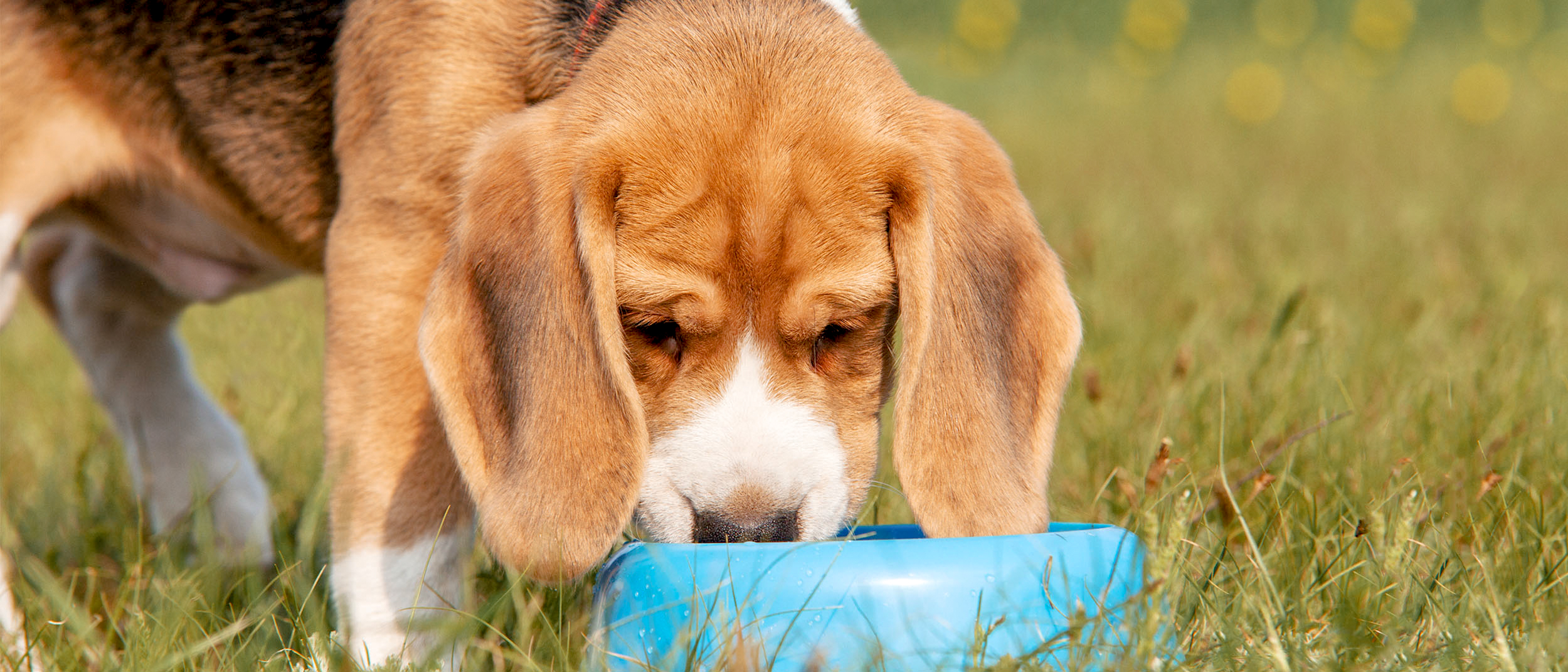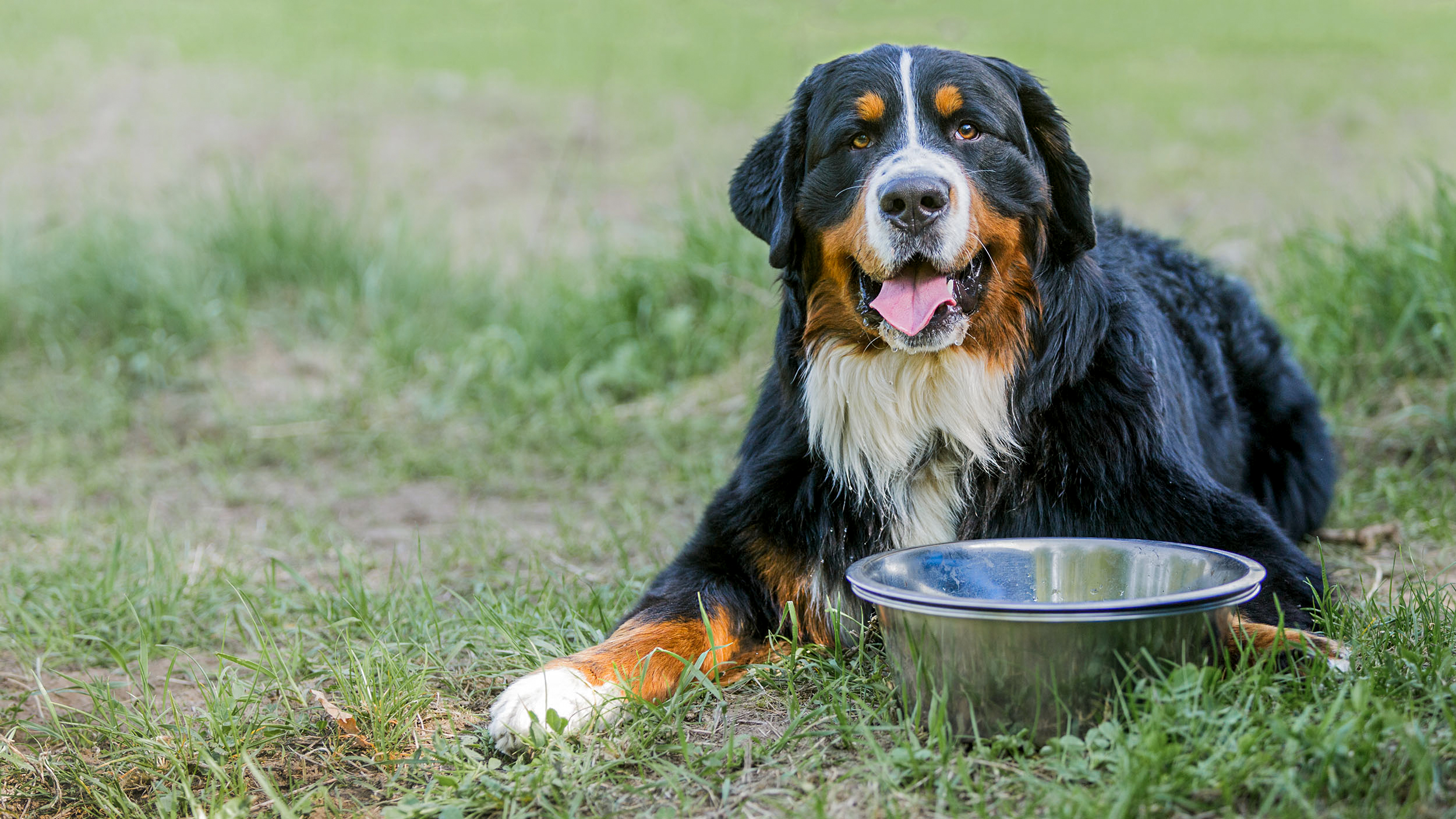How to help your dog gain weight

If your dog has recently undergone surgery or been ill, it’s possible they will have lost a significant amount of weight. Getting them back to a healthy weight is important for the effective functioning of its vital organs, but what’s the best way to do it?
What is a healthy weight for your dog?
Every dog has a slightly different healthy weight, which is based on their age, breed and sex. Your veterinarian will be able to advise you on your dog’s ideal weight, and the amount of weight they will have to gain to reach this goal. It’s important to get this information from your veterinarian, as it can be easy to overfeed your dog and accidentally allow them to put on excess weight.As a guide, if your dog is a healthy weight you should be able to feel their ribs through their body, but they shouldn’t be prominent or visible from afar. If their ribs or other bones, such as the pelvis, are visible from a distance, then your dog is underweight.
Supporting your dog’s digestive system during weight gain
After a period of convalescence or illness, your dog’s digestive system will be particularly sensitive. It’s essential not to "overload" their digestive tract when helping them gain weight, as it could result in stomach upset, vomiting or diarrhea.One of the most important parts of your dog’s digestive system is their small intestine. This is where nutrients are absorbed from your dog’s food to be used by their organs. It’s also home to microflora—"beneficial" bacteria that contribute to gut health—and the largest number of immune cells in their body. For these reasons, it’s key that any weight-gain diet you give your dog supports the health of this organ and the digestive tract as a whole without putting undue pressure on it.
What to feed your dog to help them gain weight
Although it may seem sensible, it’s not necessarily a good idea to simply give your dog more of their current food to help them gain weight; their digestion may not be able to cope with it, and it may not provide them with the specific levels of nutrients they need at that point.A weight-gain food should have a high energy density. This means you’ll be able to give your dog small rations, therefore protecting their digestive system from unnecessary strain, and they’ll still get the energy they need. A high-fat diet is often recommended for dogs recovering from surgery as it’s an energy-dense food.
Protein is an essential nutrient for dogs, and also an important source of energy. Their food should provide them with highly digestible protein from quality sources that is easily absorbed into their body. The right balance of fiber is also important, as this directly affects gut health and the quality of their stool.
Dogs who have been through surgery or illness may have lost their appetite, and so the weight-gain food needs to encourage them to eat. Smell and texture are most important to dogs, so choose a food that has been designed for maximum palatability and the right size and shape pieces for your breed or size of dog.
How to feed your dog to help them gain weight
Generally you should give your adult dog two meals a day, but you may wish to split their daily portion into smaller meals and give these more frequently. This can help improve digestibility and put less pressure on their gastric tract. You can also place their food a little higher than usual and allow gravity to help the food reach their stomach comfortably.Making their diet wetter—either by using canned food or adding water to kibble—can encourage your dog to eat as it may feel easier to eat than a dry food. Providing them with plenty of fresh water is also essential for their overall health.
The right combination of food and feeding techniques can help your dog gain weight safely; speak to your veterinarian about the best choices for your pet to help them on the road to recovery.

What to feed your dog to help them gain weight
Although it may seem sensible, it’s not necessarily a good idea to simply give your dog more of their current food to help them gain weight; their digestion may not be able to cope with it, and it may not provide them with the specific levels of nutrients they need at that point.
A weight-gain food should have a high energy density. This means you’ll be able to give your dog small rations, therefore protecting their digestive system from unnecessary strain, and they’ll still get the energy they need. A high-fat diet is often recommended for dogs recovering from surgery as it’s an energy-dense food.
Protein is an essential nutrient for dogs, and also an important source of energy. Their food should provide them with highly digestible protein from quality sources that is easily absorbed into their body. The right balance of fiber is also important, as this directly affects gut health and the quality of their stool.
Dogs who have been through surgery or illness may have lost their appetite, and so the weight-gain food needs to encourage them to eat. Smell and texture are most important to dogs, so choose a food that has been designed for maximum palatability and the right size and shape pieces for your breed or size of dog.
How to feed your dog to help them gain weight
Generally you should give your adult dog two meals a day, but you may wish to split their daily portion into smaller meals and give these more frequently. This can help improve digestibility and put less pressure on their gastric tract. You can also place their food a little higher than usual and allow gravity to help the food reach their stomach comfortably.
Making their diet wetter—either by using canned food or adding water to kibble—can encourage your dog to eat as it may feel easier to eat than a dry food. Providing them with plenty of fresh water is also essential for their overall health.
The right combination of food and feeding techniques can help your dog gain weight safely; speak to your veterinarian about the best choices for your pet to help them on the road to recovery.
Find a vet
If you have any concerns about your dog’s health, consult a vet for professional advice.
Like & share this page